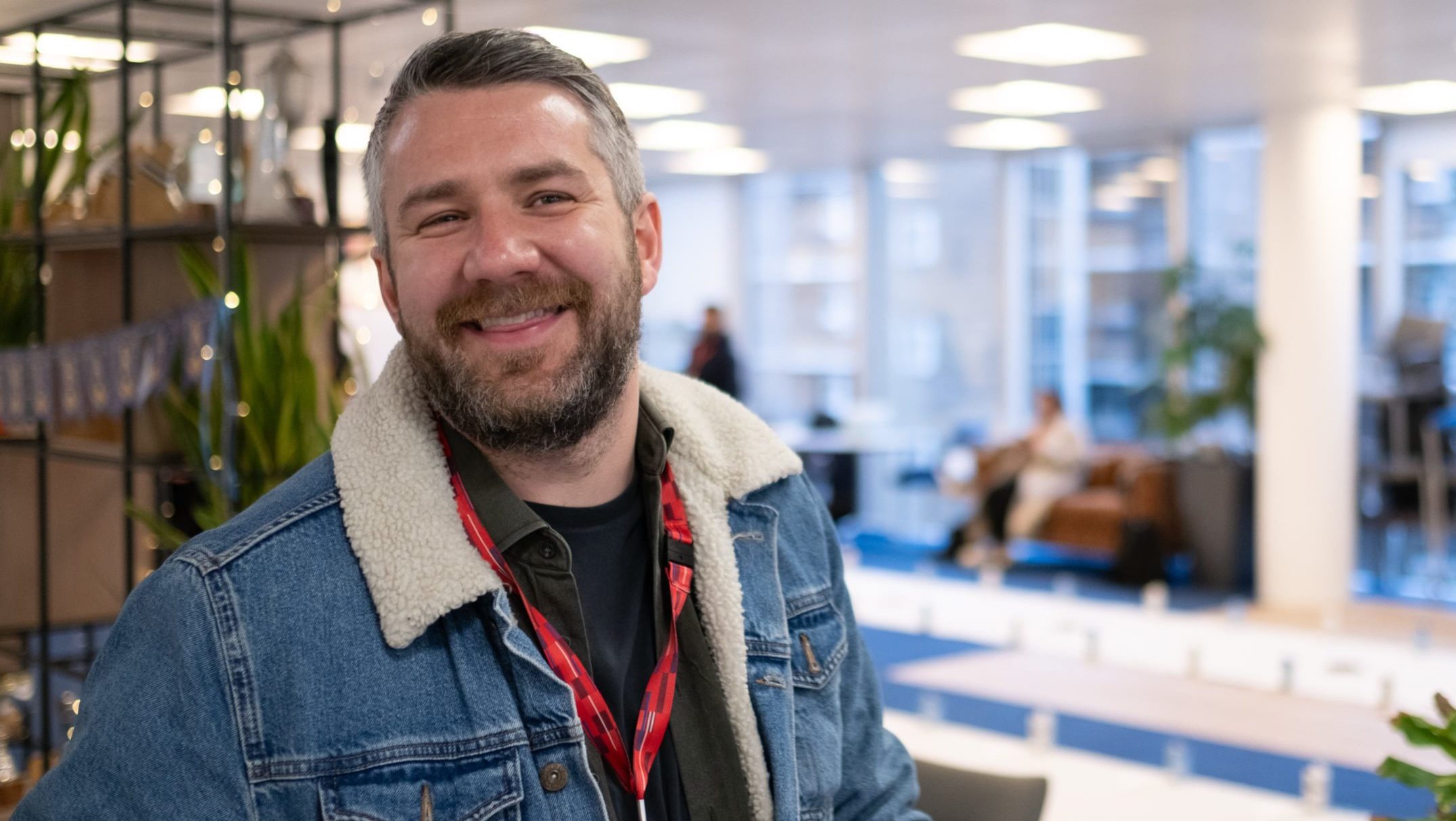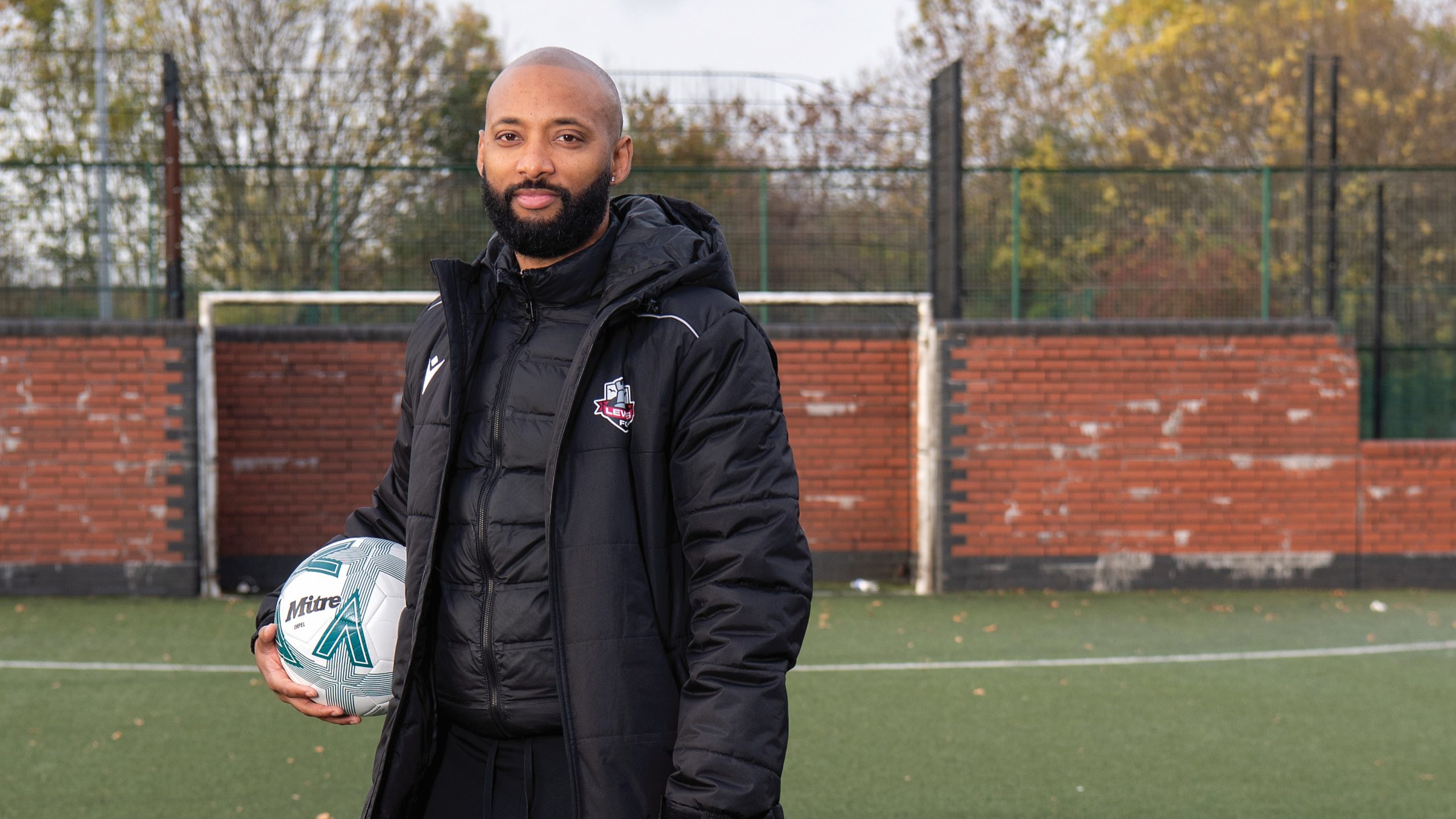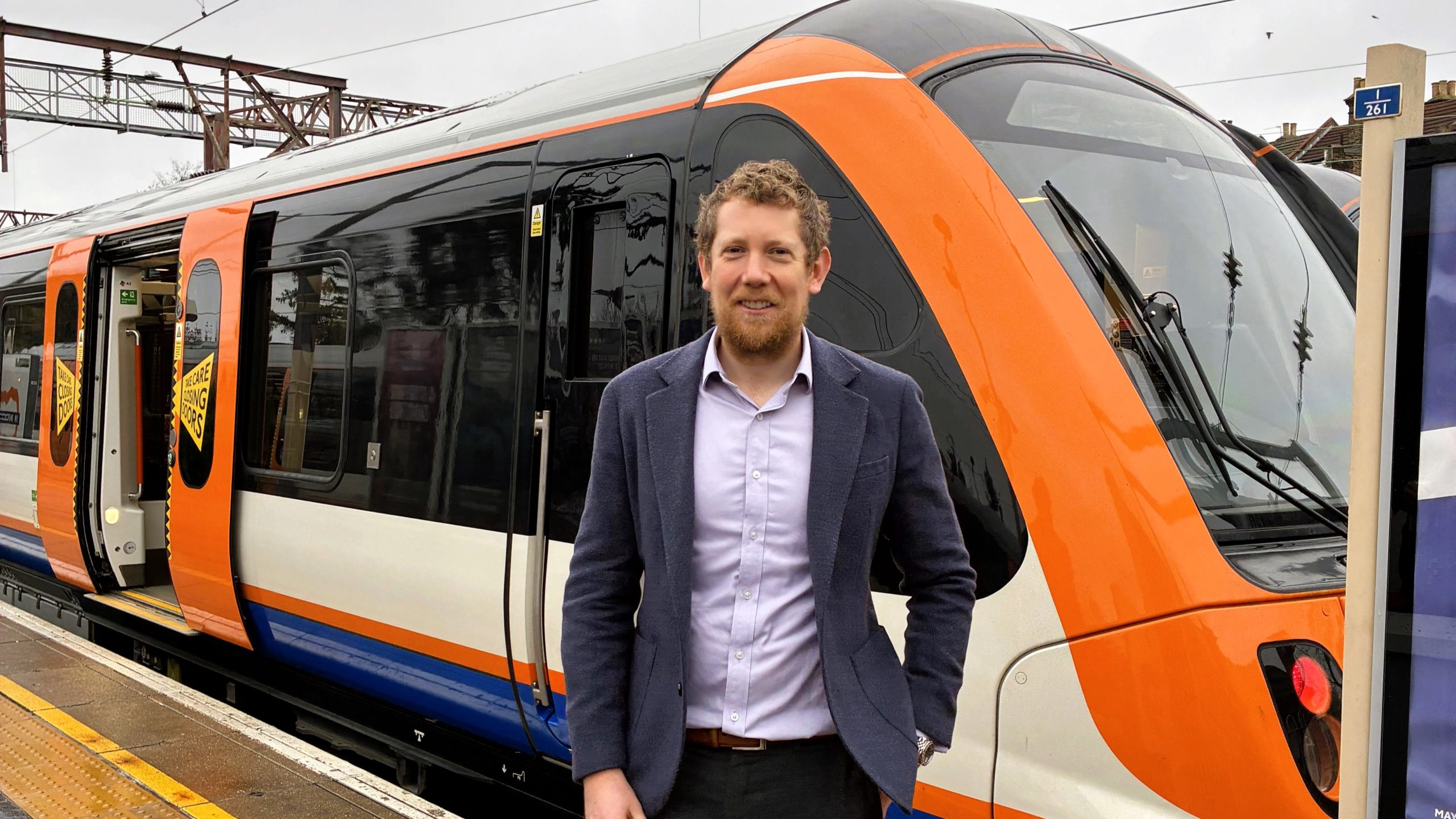- Home
- /
- Arriva Rail London news
- /
- Pride and Passengers: How...
Pride and Passengers: How service delivery manager Matthew keeps people – and progress – moving
30 June 2025

From the skies to the ‘iron road’, ARL’s Matthew Hayes has built a career rooted in customer service, passion and purpose. Now a service delivery manager (SDM) and member of the EDI steering group, Matt shares his journey through the railway, what Pride Month means to him, and why creating inclusive spaces matters more than ever.
How did you get into the railway?
I started on the railway at 19 as a part-time revenue protection officer at Virgin Trains in Euston while studying. I then moved on-board full-time catering host, which I really enjoyed.
I left the railway for a while to pursue my passion for aviation. After about five years up in the sky working as cabin crew, I realised I wanted to get back into the railway. I rejoined in 2020 – an odd time to be back on the ‘iron road’. I was working on virtually empty trains and often felt like I was just moving air around the East Midlands!
When did you join ARL?
I joined ARL in 2022 as a train delay attributor. I’d always been interested in the inner workings of the railway, so thought this would be a great opportunity to learn.
The role was interesting and insightful, but I missed working directly with customers. So when the position for SDM came up, I decided to go for it.
Can you tell us about your role as a SDM?
SDMs are responsible for a defined group of stations and the teams that work at them. At the moment, I look after five stations on the Suffragette line and support a team of fifteen colleagues.
Our role is to ensure stations are safe, secure and welcoming for both customers and employees. We work to minimise the impact of delays on our network and make sure the welfare needs of our colleagues and customers are met – especially when things don’t go to plan.

What does a typical day look like for you?
Every day is different. It’s a mobile role that can take you all over your part of the network. Although I have my own group of stations, when I’m on shift I could be responsible for any station across the Mildmay, Lioness and Suffragette lines. That can take you to several parts of London in just one day.
We work a variety of shifts across a seven-day roster, from early mornings to late evenings. Our main focus is to ensure our stations – and teams working in them – are fully supported. Whilst you may have a plan for the day, pressing issues on the network often mean rescheduling or postponing at the last minute.
What do you find most rewarding about your job?
It’s incredibly rewarding to play a part in keeping the city I call home moving. I’m very proud of my team, particularly how they pull together in times of disruption. I really enjoy receiving positive feedback from our customers about the team and seeing them recognised for the great work they do. I’m also fortunate to be part of a management team that’s genuinely supportive of one another.
You’re part of ARL’s EDI steering group – what inspired you to join?
I was chatting with a colleague who was part of the EDI steering group and nearing retirement. They mentioned they were looking for someone to replace them in the group. I was already aware of the great work the group was doing across the business, and the more I learned, the more I wanted to be involved. So, I asked if they’d consider me as a replacement – and I’m really glad I did.

Why is EDI important to you personally and professionally?
I believe everyone should feel able to bring their true selves to work. We spend so much time at work, so it’s essential people feel they can belong – EDI celebrates our differences and creates a safe environment where people genuinely feel they belong. It sparks conversations and brings people together, helping us to learn about different values and customs.
We also serve one of the most diverse cities in the world, and our workforce should reflect the diversity and inclusivity of London.
What has been your proudest moment as part of the EDI group so far?
Delivering an event at Hackney Wick station for UK Black Pride 2024 was a real highlight. The celebration has grown into the world’s largest Pride event for LGBTQI+ people of African, Asian, Caribbean, Latin American and Middle Eastern descent, and I was keen to get the party started at the station to mark the occasion.
It took a lot of work and organisation, but the event was a hit and well received by attendees and the local community.
You’ve played a key role in organising this year’s Pride events – what was your vision for them?
Last year was the first time Pride events were organised within the business, so we worked closely with OUTbound, Transport for London’s (TfL) LGBTQI+ colleague network, to share ideas and collaborate. Their guidance was incredibly helpful, and the partnership allowed us to use our budget more effectively. We also learned some valuable lessons about what worked well – and what didn’t.
This year, we’ve built on that foundation. We’ve continued working with OUTbound and also brought in a couple of other TfL modes to pool resources. Our focus has been on delivering a smaller number of well-attended, collaborative events that encourage connection and networking across teams.
Although Pride Month is coming to a close, I’m already planning another event at Hackney Wick station for this year’s UK Black Pride in August.

What advice would you give to someone who wants to get more involved in EDI work?
Go for it! I’ve been on the EDI steering group for around 18 months now, and it’s really broadened my horizons, plus I’ve met some wonderful people along the way. EDI events are open to everyone, so I would say attend as many as you can. The steering group is always looking for people to help out or lead events – so don’t be afraid to reach out if you are interested.
EDI work matters to so many people, and it’s a great opportunity to do something incredibly meaningful in your organisation.
And finally, what does Pride Month mean to you?
For me, Pride Month is a time to celebrate how far we’ve come as a community – celebrating our differences and freedoms. It’s also a time to reflect on what we can do to protect those freedoms, as well as raising awareness of political and cultural issues that still prevent everyone from being able to be their true selves.



